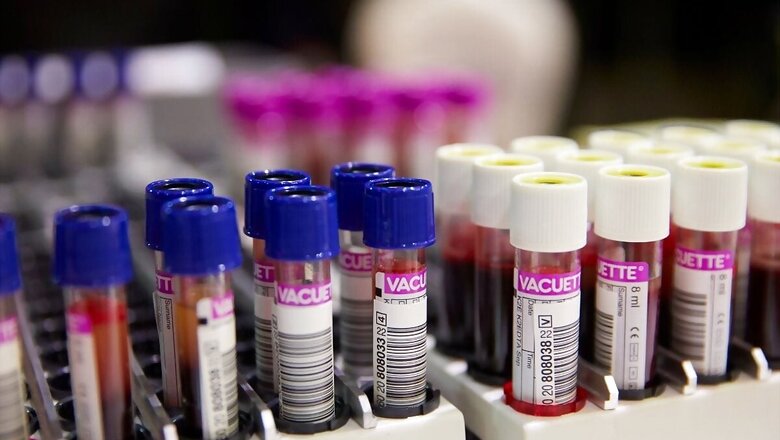
views
What is sickle cell disease?
Sickle cell disease (SCD) is a group of blood disorders in which the normally disc shaped red blood cells (RBC) become crescent or sickle shaped which makes it difficult for the RBCs to move easily through the blood vessels, resulting in blocking of blood flow. This can lead to several complications often referred to as sickle cell crisis. Patients with SCD live with complications all through their lives since it cannot be permanently cured but have to be managed through numerous clinical and therapeutical interventions.
It is most common among people of African, Arabian and Indian origin. The first evidence of SCD was seen in the tribal population in the Nilgiri hills in south India and the tea garden workers of upper Assam who were migrant workers from tribal groups in Bihar and Odisha.
Genetic inheritance
SCD is one of the most common inherited blood disorders. Normal adult hemoglobin (HbA) is made up of four protein subunits namely two alpha globins and two beta globins and one iron molecule of heme. In SCD, the gene that codes for beta globins called HBB gene harbors a pathological variation or mutation, which results in the formation of hemoglobin S (HbS). All genes present in the human genome are in two copies – one derived from mother and the other from father. SCD is inherited in an autosomal recessive pattern which means that both copies of the gene carry mutation. When both copies carry mutation for HbS, it results in sickle cell anemia. When one of the copies has the mutation for HbS and the other copy is free of mutation, it is called sickle cell trait, in which the individual is said to be carrier and mostly remains free of any complications. If both parents carry one copy of the mutation, each of their children has a 25% risk of inheriting the disease and 50% risk of being a carrier themselves. In other forms of SCD, individuals may have HbS mutation in one copy of the gene and another mutation in the other copy.
Genetic testing
SCD is one of the preventable genetic disorders. Understanding heritability and awareness about use of genetic testing can go a long way in prevention of SCD in generations to come.
Premarital counselling/testing in couples who have a family history of SCD or are considering consanguineous marriage, will benefit from carrier testing, that can throw light on their carrier status of pathogenic mutations capable of causing SCD.
Parents who have a child with SCD, through carrier testing, understand the risk that subsequent children have in developing the disease. Prenatal testing of fetus is sought by parents whose carrier status is established. A positive outcome of the test helps parents to make informed decision about the pregnancy while a negative test outcome gives them a immense relief that the child does not carry any risk for inheriting the disease.
Case study
At MedGenome, we have had a few instances where carrier testing driven genetic counseling has helped prospective parents with knowledge about future of their children in terms of heritability of a disorder. One such example of a young couple, both having sickle cell trait, that is, carrying one copy of the mutated gene for sickle cell anemia, wanted to know the fate of their baby during pregnancy. Prenatal testing using next-generation sequencing (NGS) on the amniotic fluid revealed that the fetus did not carry any pathogenic mutation in HBB gene, thus confirming that there was no risk for SCD. The couple were counseled about the disease risk in future pregnancies and suitable genetic testing recommendations were given.
Sickle cell disease has life-long physical, emotional and economic implications. However, unlike decades ago, identification of risk to future generations is possible through advanced genetic screening methods. On this world sickle cell day, apart from helping SCD patients and families with resources, let us also take a pledge to spread a word of awareness among our family, friends and social groups about the role genetic counseling and genetic testing can play in reducing the burden of this preventable disorder.
The author of this article is Dr Priyadarshini Pande, Head of Scientific Affairs at MedGenome
Read all the Latest News, Breaking News and Coronavirus News here.
















Comments
0 comment